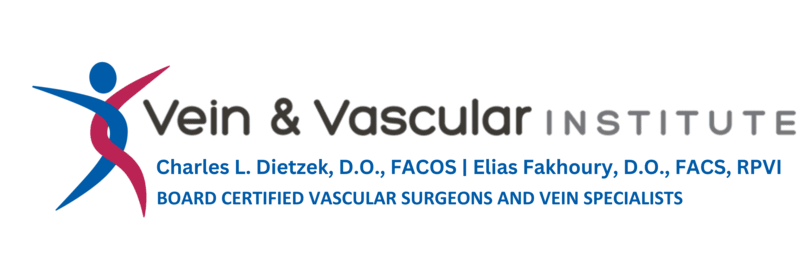Varicose veins are usually nothing more than a cosmetic issue. Even so, vein doctor Charles Dietzek has some tips to keep your legs as healthy as possible. That’s because varicose veins can lead to bleeding, painful ulcers and slow-to-heal infections if ignored.
Here are 8 things you should and shouldn’t do for varicose veins.
- Do take a break every 2-3 hours if you spend a lot of time on your feet. Elevate your leg(s) for a few moments to encourage blood flow.
- Do wear compression stockings to improve blood flow in your leg. Good blood flow prevents veins from becoming large and engorged which in turn prevents injuries to your weak veins.
- Do exercise on a regular basis to help improve circulation and keep your weight in check. If you’re heavy, the additional weight puts pressure on your leg, further increasing the risk of injuries to your varicose veins.
- Do wear low-heeled shoes to keep pressure off your legs while walking.
- Don’t stand for long periods of time in the same spot. This can slow blood flow in your legs. If you must stand in a stationary position, periodically shift your weight from one leg to the other so that only one of your legs bears your weight. You could also take a short walk, stand on your toes for a few moments or stretch your legs.
- Don’t cross your legs when sitting as it impedes blood flow, making varicose veins worse. Instead, try to keep your leg elevated while sitting or resting to improve blood flow.
- Don’t sit in the same place for a long period of time. Get up from your seat and take a short walk every 45 minutes or so.
- Don’t use topical creams, ointments or natural remedies without first talking to your vein doctor. Varicose veins are an internal condition where the valves in the blood vessels weaken and break over time. Therefore, the problem needs to be treated clinically. Over-the-counter and herbal remedies just can’t fix the issue and night damage your skin in the process.
While varicose veins can usually be managed at home, it’s important to be seen regularly in a vein clinic where your condition can be monitored. Varicose veins can become a more serious medical problem if you don’t properly take care of yourself so, for your safety, let a vein doctor check your legs periodically. He can also recommend simple treatment options that will solve the problem for good.
Make an appointment today with Dr. Charles Dietzek, an expert in the care and treatment of problem veins. Contact his vein clinic at 856-309-8346.
